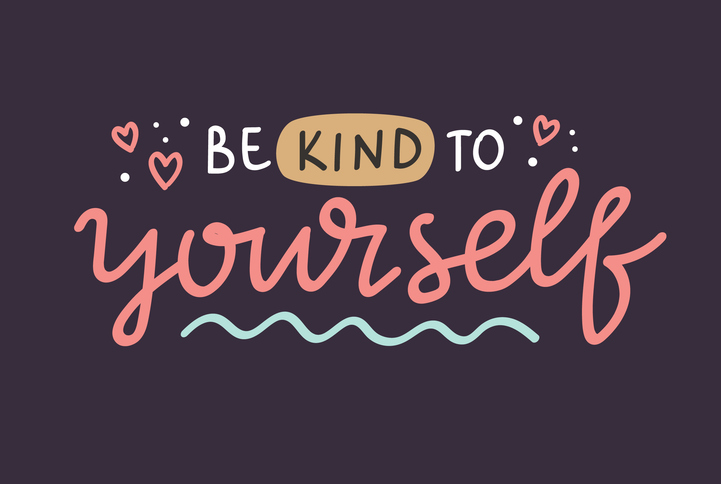What Self-Love Really Means, What It Doesn’t, and Why It Matters

By Joy Stephenson-Laws, Holistic Coach, J.D., Founder

Self-love is often misunderstood as simply indulging oneself, such as enjoying a luxurious spa day or dining at an expensive restaurant. In fact, when I was younger, that’s exactly what I thought self-love was about—treating myself to pleasant experiences. However, genuine self-love is far deeper and more meaningful. It involves treating yourself with kindness, respect, and compassion, acknowledging your own worth and taking proactive steps to care for your mental, emotional, and physical health.
Understanding True Self-Love
Genuine self-love goes beyond temporary pleasures or superficial acts of indulgence. Instead, it represents a holistic approach to self-care and personal development. Here are the key aspects of true self-love:
- Self-Acceptance
Self-acceptance involves embracing your true self, imperfections included. It means recognizing that mistakes are natural and not defining your value by them. For example, if you don't perform well on an exam, instead of harshly criticizing yourself, you acknowledge the setback, identify areas for improvement, and commit to doing better next time.
- Self-Compassion
Being compassionate to yourself means treating yourself with the same kindness you would extend to a friend in difficulty. Imagine your best friend fails at something important. You wouldn't ridicule or shame them; you'd offer support and encouragement. Self-love requires you to provide the same gentle understanding to yourself.
- Healthy Boundaries
Establishing healthy boundaries is critical for maintaining emotional and mental well-being. Boundaries might mean politely declining an invitation when you're exhausted, thereby honoring your personal needs without guilt. This reflects respect for yourself and your limits.
- Taking Responsibility
Responsibility involves acknowledging your role in situations, both positive and negative. For instance, if you forget an important deadline, you accept responsibility without blaming others unfairly. You analyze what happened and take proactive steps to prevent future issues.
- Rejecting Victimhood
Self-love also means refusing to see yourself as a helpless victim in life. Instead of blaming others or external circumstances for your problems, you empower yourself by focusing on solutions. For example, rather than blaming a teacher for unfair grading, you could seek clarification and advice on how to improve.
Common Misconceptions About Self-Love
To understand self-love fully, it is essential to distinguish it from behaviors it is often mistakenly associated with:
Selfishness: True self-love is not about ignoring others' feelings or needs to prioritize your own comfort. Genuine self-love balances your needs with consideration for others.
Narcissism: While narcissism involves seeking constant admiration and feeling superior, genuine self-love values personal growth without placing oneself above others.
Self-Indulgence: Frequent indulgence in unhealthy habits like excessive eating, drinking, or shopping under stress is not self-love. True self-love promotes behaviors that benefit long-term health and happiness.

Real-Life Illustrations of Self-Love
Example 1: Responsibility vs. Irresponsibility
- Self-love: Completing homework early so you can enjoy leisure time without stress.
- Misunderstood self-love: Ignoring responsibilities for immediate pleasure, causing stress later.
Example 2: Seeking Help vs. Pridefulness
- Self-love: Asking for help when you don't understand something, demonstrating humility and a commitment to growth.
- Misunderstood self-love: Refusing help to appear knowledgeable, hindering your growth and understanding.
Example 3: Healthy Habits vs. Comfort Choices
- Self-love: Regular exercise and balanced eating for long-term health benefits.
- Misunderstood self-love: Frequently choosing unhealthy comfort food for immediate satisfaction despite negative health impacts.
Transformative Story: Overcoming Victimhood Through Self-Love
Alex frequently felt unhappy and blamed others for his problems. Whether he performed poorly academically or experienced difficulties in friendships, Alex always saw himself as a victim. Eventually, a school counselor introduced Alex to the concept of true self-love.
Alex learned that constantly viewing himself as powerless prevented him from taking meaningful actions to improve his life. Gradually, he began to shift his mindset. Instead of assigning blame externally, he actively looked for ways to enhance his academic performance and communicate openly with friends. Over time, Alex's confidence increased, his relationships improved, and he experienced greater personal fulfillment. His story exemplifies the transformative power of self-love in replacing victimhood with empowerment.
Scientific Support for the Benefits of Self-Love
Research published in the Journal of Clinical Psychology (2021) confirms the mental health benefits of self-compassion, a cornerstone of genuine self-love. This study demonstrates that individuals practicing self-compassion experience significantly reduced levels of anxiety, stress, and depression, highlighting the profound impact self-love can have on overall psychological well-being.
The Importance of Practicing Self-Love
Emotional Health: Practicing self-love significantly reduces stress, anxiety, and depression, promoting greater emotional stability and happiness.
Relationship Quality: Self-love fosters clearer communication and healthier boundaries, leading to stronger, more fulfilling relationships.
Physical Well-being: Individuals who practice self-love regularly engage in healthier habits, such as regular physical activity and balanced nutrition, contributing positively to their physical health.
Personal and Professional Success: A foundation of self-love enhances resilience, confidence, and adaptability, qualities critical for success in personal endeavors and professional environments.
Why the More We Love Ourselves, the More We Need to be Around Others Who Love Themselves
As we develop genuine self-love, our values, energy, and expectations shift. Loving ourselves authentically means recognizing and nurturing our worth, which naturally leads us to seek environments and relationships that reflect this self-respect. Being around others who also genuinely love themselves creates a supportive, positive environment that reinforces our own healthy habits, beliefs, and emotional growth.

When we surround ourselves with people who have high self-worth and healthy boundaries, interactions become more respectful, uplifting, and meaningful. This helps sustain our self-love journey, as it continually reinforces our own positive behaviors and emotional health. Conversely, surrounding ourselves with negativity or people who lack self-respect can undermine our progress, creating challenges and setbacks to personal growth.
Conclusion: Embracing Genuine Self-Love
Self-love, when understood and practiced correctly, is a powerful force for positive change. Far from mere indulgence, it involves genuine respect for oneself, healthy emotional management, and proactive life decisions. Rejecting misconceptions about self-love allows individuals to embrace healthier behaviors and mindsets, ultimately leading to more fulfilling lives. Embracing genuine self-love isn't merely beneficial—it's essential for long-term happiness and personal growth.
Disclaimer: This article is not intended to provide medical advice. Please consult with your doctor or another competent healthcare practitioner to get specific medical advice for your situation.
The pH professional health care team includes recognized experts from a variety of health care and related disciplines, including physicians, attorneys, nutritionists, nurses, and certified fitness instructors. This team also includes the members of the pH Medical Advisory Board, which constantly monitors all pH programs, products, and services. To learn more about the pH Medical Advisory Board, click here.



